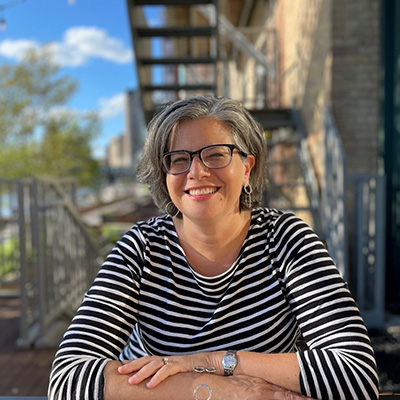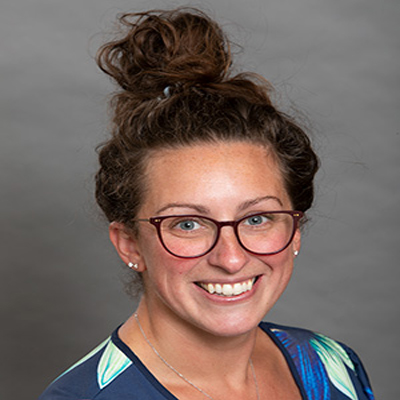School Librarianship for Certified Teachers
This pathway is designed for students who are already certified teachers and who only want to earn the additional licensure in school librarianship. This is a Post-Baccalaureate certificate.
Below is an overview of the curriculum requirements for certified teachers who want to earn School Library Media Certification without the MLIS degree. An individual program plan will be developed for each student based on previous coursework, professional licenses, and credentials. In Wisconsin, additional licensure works with Tier II or higher licenses, not ABCTE, sub-licenses, or licenses with stipulations.
School Library Media Requirements
| Course Number | Course Name | Credits |
|---|---|---|
| INFOST 520 | Managing Library Collections | 3 |
| INFOST 637 | Library Services for Young Children | 1 |
| INFOST 638 | Library Services for School-Aged Children | 1 |
| INFOST 639 | Library Services for Teens | 1 |
| INFOST 640 | Information Literacy Instruction | 3 |
| INFOST 642 | School Library Media Programs & Resources | 3 |
| INFOST 645 | Library Materials for Children | 3 |
| INFOST 646 | Library Materials for Young Adults | 3 |
| INFOST 647 | Now covered in INFOST 637, INFOST 638, INFOST 639 | |
| INFOST 670 | Instructional Technologies | 3 |
| INFOST 611 or ALA Workshop | Cataloging for School Libraries or ALA Workshop | 1 Credit or No Credit |
School Library Fieldwork
| Course Number | Course Name | Credits |
|---|---|---|
| INFOST 644 | Clinical Experience in School Libraries | 2 |
Requirements – Total Credits: 24
Frequently Asked Questions
Is there a cohort group?
Each student follows an individualized program plan at their own pace. There is no cohort group.
How many classes should I take each term?
Our students take anywhere from 1-3 classes each term. Plan to spend about 10 hours a week on each 3-credit class. Courses in the summer are condensed and require more hours per week.
Where can I learn more about the courses?
See this link for sample course syllabi and visit this link for the current class schedule. Classes are listed under INFOST.
Courses are offered online, asynchronously through Canvas and most of them are offered several times a year (fall, spring and/or summer).
Our rolling admissions process and flexible start dates allow you to begin the program in fall, spring, or summer term. The priority enrollment deadlines are March 1 for the fall term and November 1 for the spring term.
Certified teachers can join the school library media certification program, without the MLIS degree, by completing the following steps:
Apply to the School of Information Studies at UWM
If you are applying after December 1 for the spring term or after July 1 for fall term, please email Angie Sadowsky at asadowsk@uwm.edu so she can assist in processing your paperwork.
Visit the UW System undergraduate application portal at https://apply.wisconsin.edu/ to create an account and submit your application.
This portal is for the entire UW System. Use the required application instructions document below to ensure that your file is routed directly to our program.
After you are admitted to UWM and have a Student ID number complete the following:
Criminal Background Check
A criminal background check is required for entrance to all UWM K-12 licensure programs, so a Castle Branch receipt from within the past twelve months must be uploaded into the School Library Media Confirmation Form below. Results from your background check are your own personal information, but the receipt is required to acknowledge you are aware of any notifications that could impede future placement in a K-12 educational setting. Concerns about your background check results can be sent to clinical-ex@uwm.edu.
View an example reciept here.CastleBranch Instructions:
- Please select general admissions if no school library program is listed.
- Complete the online form, set up an account with a password of your choice, and then submit the PDF for the state of WI.
- DO NOT purchase a badge, place a rush order, order a vaccination card, or pay in installments because there will be an additional charge for these services and they are completely unnecessary.
The total cost, with processing fee, will be $41.99.
(Orders placed before 6/1/2024 will result in a $27.00 reimbursement from the School of Education directly into your PAWS account after your background check has been processed.)
School Librarianship Confirmation Form
Once you have been accepted at UWM and have obtained a student ID Number & Castle Branch Receipt: Please complete the confirmation form below to officially declare your intent to join a School Library Media Licensure pathway.
Hours & Credits
Supervised fieldwork is required of ALL candidates for the 1902 license. Students must complete their fieldwork under the mentorship of a School Library Media Specialist who has a WI 1902 license (or equivalent) and three years of experience at the site, when possible.
The requirements for number of hours depend on your current role in a library. These credits can be split across semesters. Ideally, fieldwork will take place in your final semester. Please the chart below.
| Required Course | Hired as a school librarian | Hired as a school library aide | Not working in a school library |
|---|---|---|---|
| INFOST 644 Clinical Experience in School Libraries | 2 credits/100 hours Hours split between: -50 hours in role -50 hours at other level | 2 credits/100 hours Hours split between: -50 hours at current level -50 hours at other level | 3 credits/150 hours Hours split between: -50 hours at the K-5 level -50 hours at the 6-8 level -50 hours at the 9-12 level |
Frequently Asked Questions
How do I complete my fieldwork hours when I am working full-time in a school?
Although it seems daunting, everyone is always successful in creating the schedule they need. Use the fieldwork chart above to see how many hours can be completed in your current role. Hours outside of your role can be completed during August in-service days, professional development days, spring break, release time, starting early or staying late. Additionally, you may count 10 hours of professional development time at SLATE in the fall or WEMTA in the spring.
What should I expect to do during my fieldwork?
All fieldwork placements involve finding a mentor, goal-setting, observing and reflecting with your mentor, having your mentor and the university supervisor observe your teaching, journaling, and self-reflection. At your placement, avoid being told or shown in favor of rolling up your sleeves and doing the work. Your placements are a great time to get your questions answered, learn practical skills, and discuss important issues.
How is my fieldwork assessed?
Your site mentor will complete a grading form, an assessment rubric, and an observation of your teaching. Your university supervisor will observe your teaching and evaluate the documents you turn in to the class Canvas site—self-assessment rubrics, journal reflections, etc.

- shersh@uwm.edu
- 414-229-2474
- Northwest Quadrant D 3965
